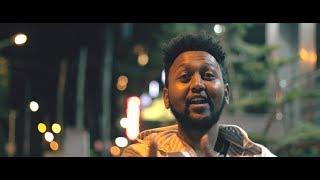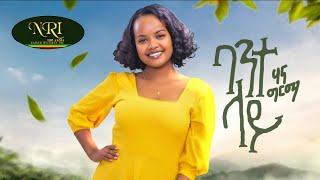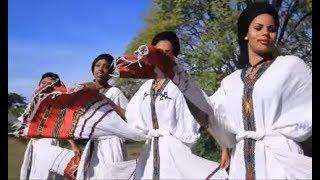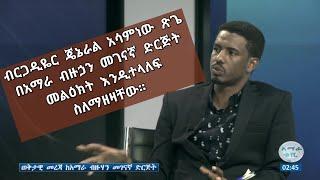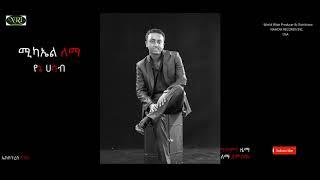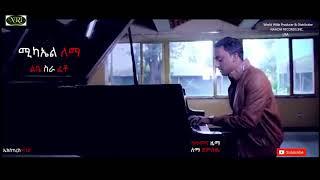Ethiopian classical instrumental music, Enjoy
Subscribe for more!
https://en.wikipedia.org/wiki/Music_of_Ethiopia
Tilahun Gessesse, one of the most popular artists in Ethiopia during the local music scene's "Golden Age" in the 1960s
Ethiopia is a musically traditional country. Of course, popular music is played, recorded and listened to, but most musicians also sing traditional songs, and most audiences choose to listen to both popular and traditional styles. A long-standing popular musical tradition in Ethiopia was that of brass bands, imported from Jerusalem in the form of forty Armenian orphans (Arba Lijoch) during the reign of Haile Selassie. This band, which arrived in Addis Ababa on September 6, 1924, became the first official orchestra of Ethiopia. By the end of World War II, large orchestras accompanied singers; the most prominent orchestras were the Army Band, Police Band, and Imperial Bodyguard Band.
From the 1950s to the 1970s, Ethiopian popular musicians included Bizunesh_Bekele, Mahmoud Ahmed, Alemayehu Eshete, Hirut Bekele, Ali Birra, Ayalew Mesfin, Kiros Alemayehu, Muluken Melesse and Tilahun Gessesse, while popular folk musicians included Alemu Aga, Kassa Tessema, Ketema Makonnen, Asnaketch Worku, and Mary Armede. Perhaps the most influential musician of the period, however, was Ethio-jazz innovator Mulatu Astatke. Amha Records, Kaifa Records, and Philips-Ethiopia were prominent Ethiopian record labels during this era. Since 1997, Buda Musique's Éthiopiques series has compiled many of these singles and albums on compact disc.
During the 1980s, the Derg controlled Ethiopia, and emigration became almost impossible. Musicians during this period included Ethio Stars, Wallias Band and Roha Band, though the singer Neway Debebe was most popular. He helped to popularize the use of seminna-werq (wax and gold, a poetic form of double entendre) in music (previously only used in qiné, or poetry) that often enabled singers to criticize the government without upsetting the censors.
Contemporary scene[edit]
Alemayehu Eshete, a prominent contemporary Ethiopian artist
The most popular musicians from Ethiopia are Teddy Afro and the Los Angeles–area expatriate Aster Aweke.
One of the biggest new trends, however, has been the rise of bolel, a sort of blues-like music, played by sarcastic azmari playing in parts of Addis Ababa, especially Yohannès Sefer and Kazentchis. Bolel musicians include Tigist Assefa, Tedje and Admassou Abate.
Currently the most prominent Ethiopian singer internationally is Gigi. Through her performing with prominent jazz musicians such as Bill Laswell (who is also her husband) and Herbie Hancock, Gigi has brought Ethiopian music to popular attention, especially in the United States, where she now lives.
Another noteworthy singer is Neway Debebe, who was very popular among the youth of the 1980s and early 1990s with such songs as "Yetekemt Abeba," "Metekatun Ateye," "Safsaf," and "Gedam" - among others. Abatte Barihun has exemplified all four main qenets on his 2005 album Ras Deshen.[4]
Éthiopiques producer Francis Falceto criticizes contemporary Ethiopian music for eschewing traditional instruments and ensemble playing in favor of one-man bands using synthesizers.[9] Harvard University professor Kay Kaufman Shelemay, on the other hand, maintains that there is genuine creativity in the contemporary music scene.[
Abatte Barihun
Abdu Kiar
Ashenafi Kebede
Abel Tesfaye (The Weeknd)
Alemayehu Eshete
Alemu Aga
Ali Birra
Asnaketch Worku
Aster Aweke
Efrem Tamiru
Fendika
Getatchew Mekurya
Gigi Shibabaw
Girma Bèyènè
Kenna
Kiros Alemayehu
Kuku Sebsebe
Mahmoud Ahmed
Maritu Legese
Minilik Wosinachew
Mulatu Astatke
Muluken Melesse
Samuel Yirga
Tadesse Alemu
Temesgen Gebregziabher
Tewodros Kassahun -Teddy Afro
Thomas Gobena
Tigist Shibabaw
Tilahun Gessesse
Walias Band
Subscribe for more!
https://en.wikipedia.org/wiki/Music_of_Ethiopia
Tilahun Gessesse, one of the most popular artists in Ethiopia during the local music scene's "Golden Age" in the 1960s
Ethiopia is a musically traditional country. Of course, popular music is played, recorded and listened to, but most musicians also sing traditional songs, and most audiences choose to listen to both popular and traditional styles. A long-standing popular musical tradition in Ethiopia was that of brass bands, imported from Jerusalem in the form of forty Armenian orphans (Arba Lijoch) during the reign of Haile Selassie. This band, which arrived in Addis Ababa on September 6, 1924, became the first official orchestra of Ethiopia. By the end of World War II, large orchestras accompanied singers; the most prominent orchestras were the Army Band, Police Band, and Imperial Bodyguard Band.
From the 1950s to the 1970s, Ethiopian popular musicians included Bizunesh_Bekele, Mahmoud Ahmed, Alemayehu Eshete, Hirut Bekele, Ali Birra, Ayalew Mesfin, Kiros Alemayehu, Muluken Melesse and Tilahun Gessesse, while popular folk musicians included Alemu Aga, Kassa Tessema, Ketema Makonnen, Asnaketch Worku, and Mary Armede. Perhaps the most influential musician of the period, however, was Ethio-jazz innovator Mulatu Astatke. Amha Records, Kaifa Records, and Philips-Ethiopia were prominent Ethiopian record labels during this era. Since 1997, Buda Musique's Éthiopiques series has compiled many of these singles and albums on compact disc.
During the 1980s, the Derg controlled Ethiopia, and emigration became almost impossible. Musicians during this period included Ethio Stars, Wallias Band and Roha Band, though the singer Neway Debebe was most popular. He helped to popularize the use of seminna-werq (wax and gold, a poetic form of double entendre) in music (previously only used in qiné, or poetry) that often enabled singers to criticize the government without upsetting the censors.
Contemporary scene[edit]
Alemayehu Eshete, a prominent contemporary Ethiopian artist
The most popular musicians from Ethiopia are Teddy Afro and the Los Angeles–area expatriate Aster Aweke.
One of the biggest new trends, however, has been the rise of bolel, a sort of blues-like music, played by sarcastic azmari playing in parts of Addis Ababa, especially Yohannès Sefer and Kazentchis. Bolel musicians include Tigist Assefa, Tedje and Admassou Abate.
Currently the most prominent Ethiopian singer internationally is Gigi. Through her performing with prominent jazz musicians such as Bill Laswell (who is also her husband) and Herbie Hancock, Gigi has brought Ethiopian music to popular attention, especially in the United States, where she now lives.
Another noteworthy singer is Neway Debebe, who was very popular among the youth of the 1980s and early 1990s with such songs as "Yetekemt Abeba," "Metekatun Ateye," "Safsaf," and "Gedam" - among others. Abatte Barihun has exemplified all four main qenets on his 2005 album Ras Deshen.[4]
Éthiopiques producer Francis Falceto criticizes contemporary Ethiopian music for eschewing traditional instruments and ensemble playing in favor of one-man bands using synthesizers.[9] Harvard University professor Kay Kaufman Shelemay, on the other hand, maintains that there is genuine creativity in the contemporary music scene.[
Abatte Barihun
Abdu Kiar
Ashenafi Kebede
Abel Tesfaye (The Weeknd)
Alemayehu Eshete
Alemu Aga
Ali Birra
Asnaketch Worku
Aster Aweke
Efrem Tamiru
Fendika
Getatchew Mekurya
Gigi Shibabaw
Girma Bèyènè
Kenna
Kiros Alemayehu
Kuku Sebsebe
Mahmoud Ahmed
Maritu Legese
Minilik Wosinachew
Mulatu Astatke
Muluken Melesse
Samuel Yirga
Tadesse Alemu
Temesgen Gebregziabher
Tewodros Kassahun -Teddy Afro
Thomas Gobena
Tigist Shibabaw
Tilahun Gessesse
Walias Band
- Category
- Amharic Traditional Music
Sign in or sign up to post comments.
Be the first to comment





